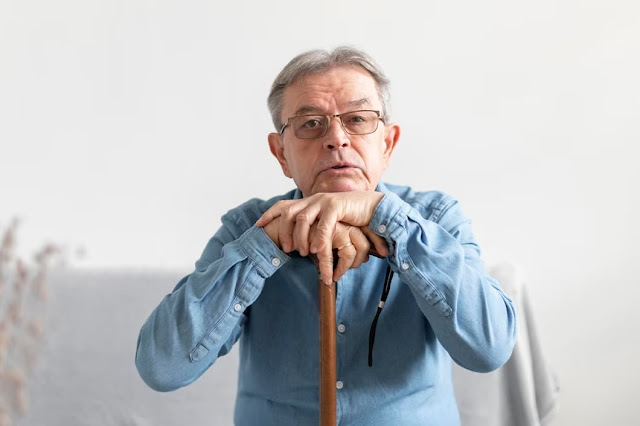
As we age, our bodies and minds go through a natural aging process. While some changes, such as increased wisdom and life experience, maybe welcomed, others can be detrimental to our mental health. Age-related declines in cognitive and physical abilities can make managing daily stressors and maintaining a positive outlook more difficult.
The increased risk
of developing conditions such as depression and anxiety is one of the most
significant challenges that aging adults face. Changes in brain chemistry, chronic illness, social isolation, and stress
related to life changes such as retirement or the loss of a loved one can all
contribute to these mental health conditions.
What
statistics say about the elderly’s mental health
●
The population is rapidly aging.
The proportion of the world's population over 60 years old will nearly double
between 2015 and 2050, from 12% to 22%.
●
More than 20% of adults aged 60
and up have a mental or neurological disorder.
●
Mental and neurological disorders
account for 6.6% of all disabilities among people over the age of 60.
●
Anxiety disorders affect 3.8% of
the elderly population, substance use disorders affect nearly 1%, and people
aged 60 and up account for nearly a quarter of self-harm deaths. Substance
abuse problems in the elderly are frequently overlooked or misdiagnosed.
●
Suicide rates among older men are
the highest of any age group. Suicide rates among men aged 85 and up are 45.23
per 100,000, compared to an overall rate of 11.01 per 100,000 for all ages.
●
Dementia and depression are the
most common mental and neurological disorders in this age group, affecting
approximately 5% and 7% of the world's older population, respectively.
Why
older adults are at risk of mental health problems
●
Mental health affects physical
health and vice versa. Older adults with physical health conditions such as
heart disease, for example, have higher rates of depression than those who are
healthy.
●
The significant ongoing loss of
capacities and decline in functional ability can adversely affect an older
person’s mental health.
●
They are also vulnerable to elder
abuse, which includes physical, verbal, psychological, financial, and sexual
abuse, as well as abandonment, neglect, and serious loss of dignity and
respect.
How to
improve mental health in older people
Although the
prevalence of mental health conditions among older adults rises with age,
depression and other illnesses are not a normal part of the aging process. Here
are a few ways to improve and maintain good senior mental health and well-being.
Keep
them physically active
If they can, get
them physical every day. Whether it’s yoga, regular walks, or ballroom dancing,
keeping an active lifestyle can help boost their morale and improve
circulation. Low-impact exercises such as stretching and strength training can
help seniors stay healthy and reduce the risk of common age-related issues,
such as bone fractures, joint pain, and other chronic illnesses.
Stay
in touch with peers
Keeping in touch
with the important people in their lives can help older adults avoid loneliness
and feelings of isolation, which can lead to depression and mental and physical
decline.
Stimulate
their minds
The brain requires
stimulation to stay sharp and avoid cognitive decline as we age, just as the
body requires physical activity and stimulation to stay healthy. Any activity
that keeps the mind active and working to solve problems benefits brain health.
It can be as simple as solving puzzles, or you can encourage them to learn a
new language or play a new instrument.
Encourage
them to volunteer
Volunteering for a
worthy cause provides many seniors fulfillment and a sense of purpose. It can
help seniors stay active, socially engaged, and a part of a vibrant and diverse
community. There are a lot of opportunities for older adults to get involved
and, as a result, feel valued and needed. They can share their time and wisdom
with children and young students, or they can volunteer at a local food pantry
or soup kitchen.
Tips
for caregivers
●
Pay attention to changes in behavior. It’s
important to read the signs. If your loved one gets lost on simple outings,
their conversations are starting to be less coherent, or you notice changes in
their hygiene habits, it may be time to offer additional assistance.
●
Consider hospice care. If you need assistance
with caring for an elderly loved one with mental health issues, hospice care
would be a good option. The hospice care team will provide the best and most
appropriate treatment or support to help patients with mental illnesses improve.
If you’d rather have your elderly loved one cared for at home, you may also opt
for in-home
hospice care.
Final
thoughts
Aging can have a
significant impact on a person's mental health, so it's critical to recognize
the signs of mental illness in the elderly and take proactive steps to address
them.





